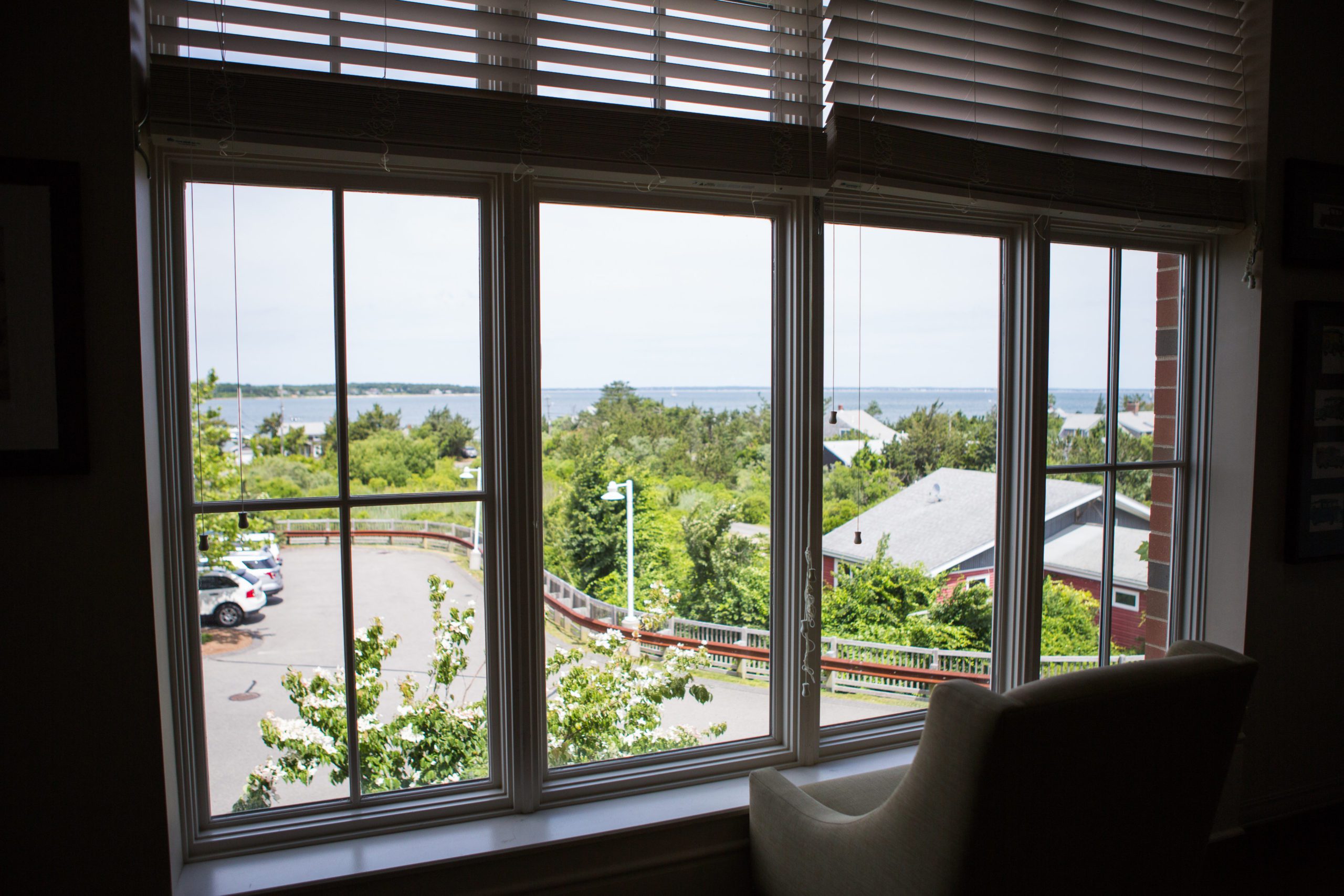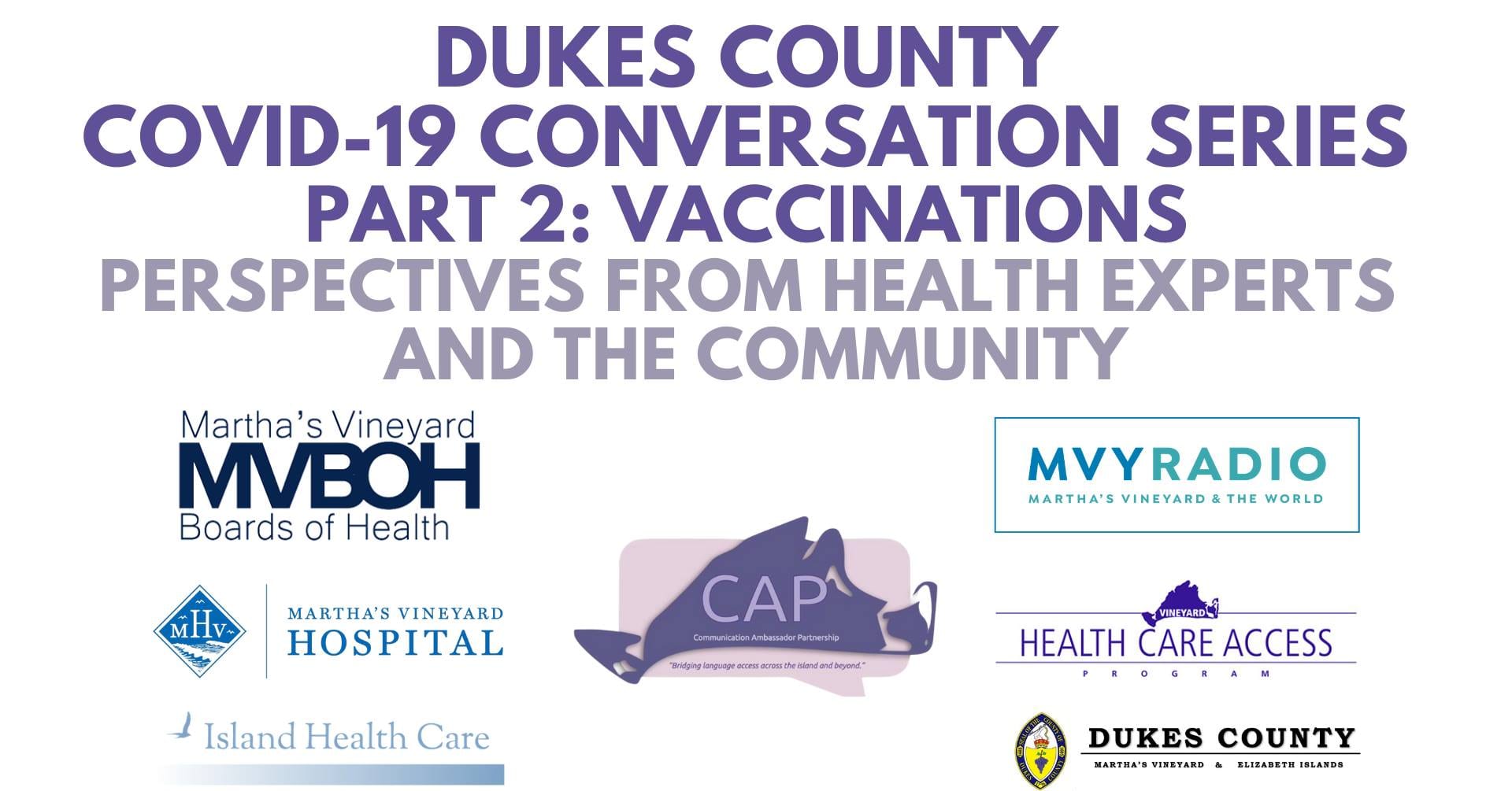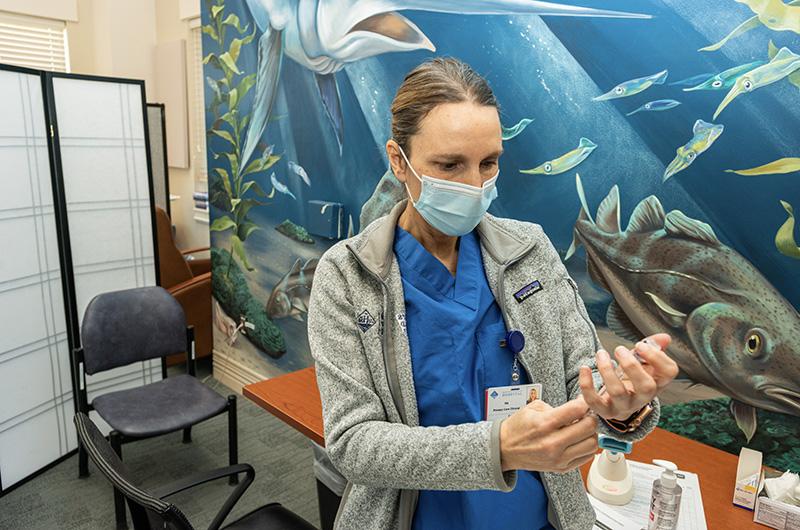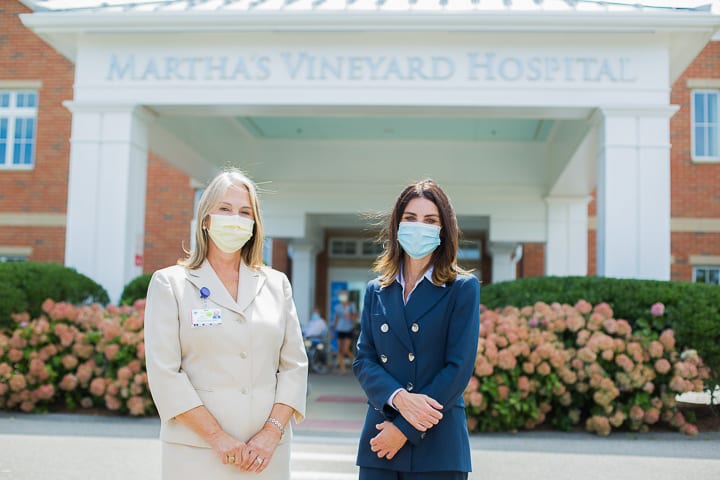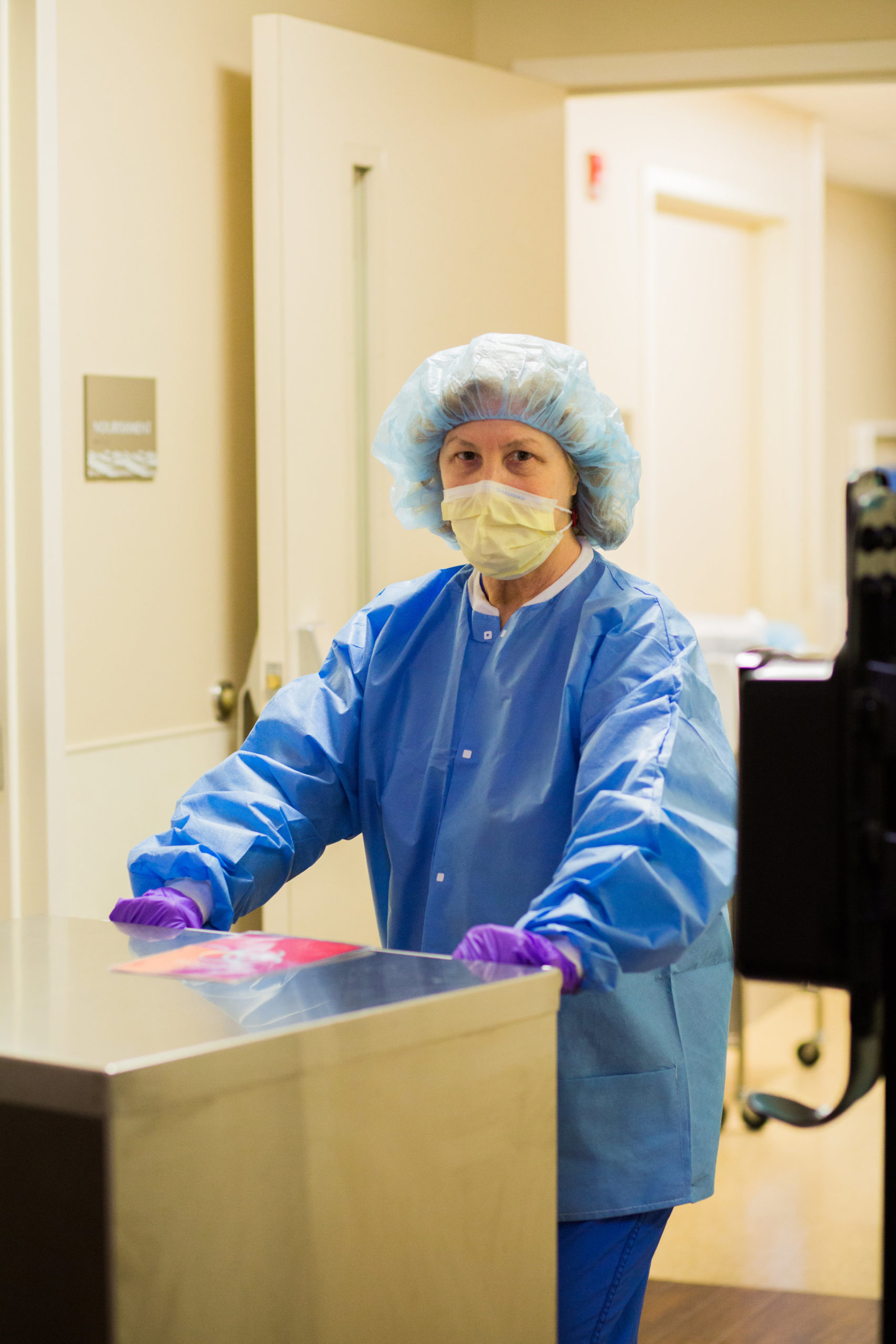While you are in the hospital, you will be assigned a care team comprised of hospitalists, nurses, and certified nursing assistants who work together to provide you with quality care. Each care team is led by a hospitalist, who is a Doctor, Nurse Practitioner, or a Physician Assistant. Each specializes in providing care for hospitalized patients.
Please let us know if you have any questions.
Thank you for trusting us with your care.
Our Visitor Policy
The Quality and Patient Safety Department includes Patient Experience, Patient Advocacy, Risk Management, and Infection Prevention. In our continuing effort to improve the quality of care we provide to our patients, we ask you to complete a survey about their experience at Martha’s Vineyard Hospital. This survey is conducted over the phone, email, or mail in the week following the patient’s visit. We want to learn from your experience- good or bad. The Department of Quality and Patient Safety welcomes your compliments or concerns. Our Patient Advocate and Safety Specialist is here to help you resolve a problem by communicating your concerns with your healthcare team in order to facilitate resolution and offer you and your family support regarding any concerns you may have.
Quality and Patient Safety Department: 508-957-9551
Patient Advocacy: 1-508-957-9497
Social Services and Case Management
Martha’s Vineyard Hospital’s Social Services and Case Management Department is here to help patients find solutions to problems they may encounter in managing their health care. Our social workers collaborate with our hospital providers and staff as well as community agencies to assure delivery of comprehensive patient/family focused care. Social work services are private and confidential. Case managers are available to help you, your significant other, caregiver and your physician develop a plan of care to meet your healthcare needs upon discharge. Both departments will also work with you to identify available financial resources to meet your healthcare needs.
Upon admission, we can provide you with assistance in preparing a Health Care Proxy. The Health Care Proxy is a simple legal document that allows you to name someone you know and trust to make healthcare decisions for you if, for any reason and at any time, you become unable to make or communicate those decisions. Ask for one during the admissions process or ask a nurse or your case manager.
Spiritual Support & The Chapel
At Martha’s Vineyard Hospital, we understand that there can be many factors in the healing process, and one is faith. The Hospital’s chapel and chaplains arc available to all, regardless of their religious affiliation. The on-call chaplain’s schedule and contact information arc posted in the Hospital’s Chapel. Chaplains can be reached by notifying your nurse, doctor or any member of the Hospital’s patient care staff. The Chapel is open daily and is available to patients and visitors of any faith. It is located in the MV Hospital Annex, just off the Annex Lobby area.
Interpreters are available to assist patients and their families via telephone and video interpreter services Access to more than 240 languages are available to patients and families.
Cell Phone/Camera Use
- Hospital policy lets patients and visitors use cell phones in most areas. Taking photos or video of Martha’s Vineyard Hospital patients or employees is strictly prohibited.
- We ask that you consider others near you or move to a private area when making a phone call.
- Taking photos or video of Martha’s Vineyard Hospital patients or employees is prohibited.
- The hospital cannot be held responsible for damage to or loss of your cell phone if you keep it in your room while in the hospital.
- Hospital policy forbids the use any camera, including cell phone cameras, recorders or video without express written consent of patients and Director of Marketing and Public Affairs.
Mass General Brigham can assist uninsured and under-insured Martha’s Vineyard Hospital patients who have limited financial resources to pay their medical bills. Information on the Mass General Brigham Financial Assistance Policy is available in other languages. Learn more about Patient Billing and Financial Assistance.
You are encouraged to contact Patient Financial Services at 1-508-957-0157 for information on available financial assistance.
Martha’s Vineyard Medical Records Department is open Monday through Friday from 8:00 a.m. to 4:00 p.m.
Telephone: 1-508-957-9832
Fax: 508-696-8708
To get a copy of your medical record, patients can call the Medical Records Department and we can send you a request/release form. You will be asked for the following information:
- Your full name at the time of treatment
- Date of birth
- Date(s) of treatment
- The name and address of the person or facility to which disclosure if to be made
- The kind and amount of information to be disclosed; for instance, “a summary of my hospitalization”
- The purpose of the disclosure; for instance, “Continuing Care” or “Insurance”
- Your signature
- Date of consent
- Photo identification will be needed when you pick up your records.
Requests can also be made using EPIC’s ‘My Chart.’ or by downloading the request form.
Usually you can expect a response within about two weeks unless your request is medically urgent. For urgent requests please allow 48 hours preparation time.
You may revoke your consent for the release of records at any time, unless the facility had already sent the forms under your consent. You may also specify a time frame for the disclosure. After that time, your consent becomes automatically invalid.
There may be a fee to cover our costs for this service. This fee will be waived if the records are being sent directly to a new physician and/or another healthcare facility.
Your medical record is confidential. It may not be released without your written consent or that of your authorized representative.
Medicare/Medicaid Patient Rights
As a Medicare/Medicaid patient, you are entitled to receive hospital care regardless of the cost of treatment or the seriousness of your illness. Hospitals may not discriminate based on your diagnosis, average length of stay, or -other criteria that are not applied equally to other patients with comparable medical needs.
Hospitals may not:
- Deny admission when hospital care is needed.
- Inappropriately delay admission to the hospital.
- Prematurely transfer or discharge a patient.
- Inadequately treat a patient.
If you need assistance with post-hospital services, the hospital must give you a written discharge plan at least 24 hours before your release from the hospital (unless a short stay makes it impossible to meet the 24 hour requirement.) The plan should indicate all arrangements that the hospital has made for your post-hospital care.
If you do not agree with your discharge plan, your doctor and the hospital Case Manager must meet with you to develop a satisfactory plan. If, after the meeting, you still do not agree with your discharge plan, you may request the Department of Public Health’s Advocacy Office to review the plan and decide whether it is adequate.
To file a complaint of discrimination or to request a review of a discharge plan, contact:
Department of Public Health
Division of Health Care Quality
99 Chauncy St. Boston, MA 02111
1-617-753-8000 (24 hours/day, 7 days a week)
All hospital personnel, medical staff members and contracted agency personnel performing patient care activities shall observe these patient rights.
Martha’s Vineyard Hospital’s registered dietitians work with both Inpatients and Outpatients to develop an individualized plan to address the special dietary needs for a variety of conditions including surgical prep and recovery, cancer recovery, gastrointestinal disorders, heart disease and hypertension.
Please contact us at 1-508-957-9473 for additional information.
Most outpatient consultations require a physician referral.
Transitional Care Program
Transitional Care Programs offer a much-needed service, designated for small hospitals, for Medicare patients who no longer require acute hospital services but need skilled nursing services to complete their recoveries.
Martha’s Vineyard Hospital’s Transitional Care Program is designed to facilitate rehabilitative care which is sometimes needed following an illness, injury or surgery. The purpose is to assist individuals in improving their physical, emotional and social functioning through rehabilitative and skilled nursing therapies.
Who might need Transitional Care?
- Patients needing rehabilitative physical and occupational therapy services following surgery or illness.
- Patients needing IV Therapy.
- Patients needing care of wounds which require daily evaluation and treatment by skilled personnel.
- Patients needing restorative nursing procedures such as ostomy training, diabetes instruction, etc.
To utilize the Transitional Care Program, patients must need services provided by a healthcare professional, such as nurses, physical therapists, occupational therapists and respiratory therapists.
Patient participation in the Transitional Care Program is regulated by Medicare, and by federal and state agencies. A three-day, acute hospital level of care stay within 30 days prior to Transitional Care is required. The patient must need some form of skilled nursing or skilled rehabilitation service which can be provided only in a skilled nursing facility to qualify for Medicare payment.
The goal of the Transitional Care Program is to return patients to their homes. Under the direction and supervision of the patient’s physician, Martha’s Vineyard Hospital will make every effort to assist the patient to achieve an optimum level of function and self-care through specialized therapies and education through an individualized plan of care.
The Transitional Care Program can offer a great alternative to choosing a nursing home for orthopedic rehabilitation. Patients can learn daily living activities in the comfort of a hospital near friends and family before returning home as soon as recovery has been achieved.
If you would like more information about the Martha’s Vineyard Hospital Transitional Care Program or would like to make a patient referral, please call Martha’s Vineyard Hospital at 1-508-957-9317.
Your Rights:
As a patient at Martha’s Vineyard Hospital, you can expect:
- Information about pain and pain relief measures.
- Information on potential side-effects of pain relief medicines.
- Assistance from concerned staff committed to pain management.
- Health professionals who respond appropriately to all reports of pain.
Your Responsibilities:
As a patient at Martha’s Vineyard Hospital, we expect that you will:
- Ask your doctor or nurse what to expect.
- Discuss pain relief options with your doctors and nurses.
- Work with your doctor and nurse to make a pain relief plan.
- Ask for pain relief drugs when your pain first begins.
- Help the doctor and nurse measure your pain.
- Communicate with the doctor or nurse about adequate pain control.
- Report side effects of your pain medication immediately to your doctor or nurse.
- Discuss your concerns about getting “hooked” on pain medication with your doctor or nurse.
Hand Hygiene Preventing the Spread of Infection
Patients and visitors can help prevent the spread of germs and infection by following these simple steps:
- Hand washing is the most important step to prevent infection!
- Always wash hands before and after visiting a patient, after going to the bathroom, sneezing, coughing and before eating.
- Remind anyone entering or exiting a patient room that practicing proper hand hygiene is the best way to prevent the spread of infection.
- Please do not visit a patient when you are sick.
- Some patients need special kinds of infection prevention like isolation. When a patient is on isolation precautions, everyone (staff and visitors) may need to wear gloves, gowns and/or masks.
- Check with the nurse before visiting if you do not know if you are contagious or if you are bringing children.

